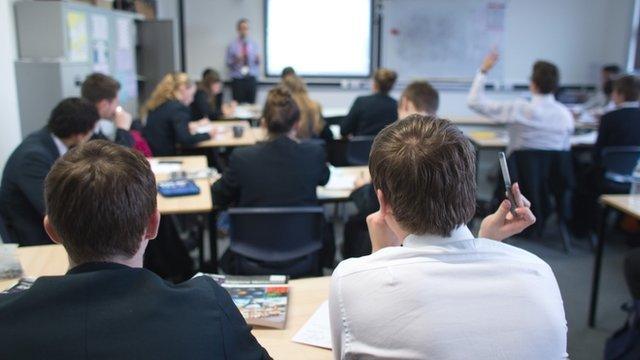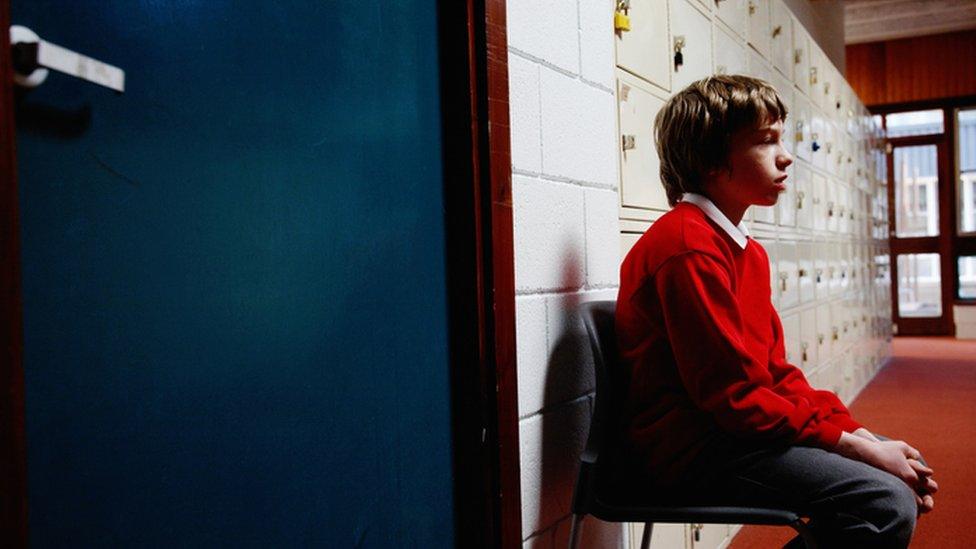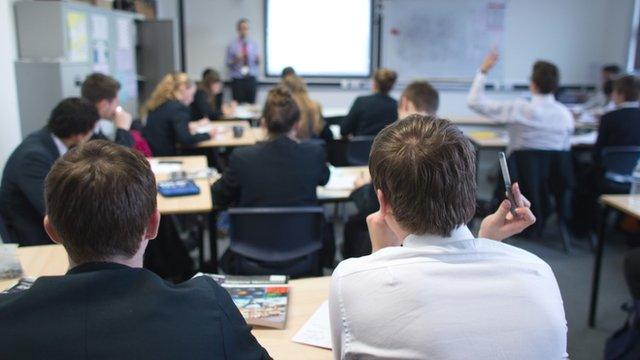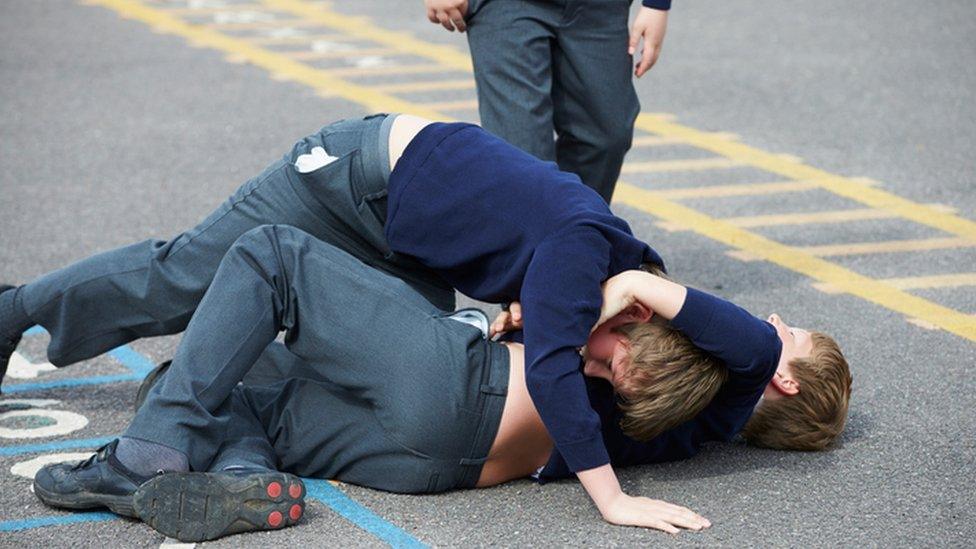Excluded pupils' results 'to be part of league tables'
- Published

Schools in England will have to stay accountable for pupils they exclude, a government-backed review has said.
It could mean school league table rankings having to include the exam results of pupils who have been excluded and moved elsewhere.
The intention is to stop so-called "off-rolling", where schools remove difficult or low-achieving pupils.
"Exclusion from school should never mean exclusion from education," said review author Edward Timpson.
Education Secretary Damian Hinds, endorsing the report, promised "greater clarity" for schools over the appropriate use of exclusions.
'Missed opportunities'
Mr Hinds said a consultation in the autumn would consider how accountability measures, such as league tables, could be used to keep schools responsible for the future outcome of excluded pupils.
Mr Timpson, a former education minister, said there was "clear room for improvement" in arrangements for pupils who have been excluded.
This includes concerns about the quality of some "alternative provision" places, where pupils are taught if they are removed from mainstream schools.
Mr Timpson warned there was "too much variation in the use of exclusions and too many missed opportunities".
On average about 2,000 pupils are excluded from school each day - with 40 being permanently excluded.
But the review says despite numbers rising since 2014, the current rates of exclusion are not unusually high, and are lower than a decade ago.
'Slip through the net'
There were calls for more scrutiny of how exclusions tend to be concentrated in some "vulnerable" groups.
More than three-quarters of permanent exclusions are among pupils who either have special needs or are eligible for free school meals.
Black Caribbean pupils are more likely to be excluded than White British, but children from Indian and Bangladeshi backgrounds have lower rates of exclusion.
While 43% of secondary schools had no permanent exclusions, in 0.2% of secondary schools there were more than 10 pupils permanently excluded per year.
Mr Timpson's review called for a more consistent approach to "make sure no child slips through the net".
There were warnings of a "worse trajectory" for excluded pupils, including an increased chance of becoming a young offender or being out of work.
Knife crime
In the recent wave of knife attacks, there have been questions about the links between such crimes and young people excluded from school.
The education secretary said it was important "not to draw a simple causal link between exclusions and knife crime, as there is no clear evidence to back this up".
But Mr Hinds said that education could provide a "protective factor", which made it a priority to improve the quality of alternative provision.
The government has promised to try to recruit more "high-quality staff" to work in alternative provision settings.
It will also ask the education watchdog Ofsted to tackle "off-rolling" where schools might try to remove pupils who cause problems or who might lower exam league table performance.
The education secretary also emphasised the need to back head teachers in maintaining "safe and orderly" environments in school.
Mr Hinds said the adviser on behaviour, Tom Bennett, will help to rewrite the guidance on behaviour and discipline in school.
Geoff Barton, head of the Association of School and College Leaders, welcomed that the review and government response supported the right of head teachers to exclude pupils, even though that would be a "last resort".
'Double whammy'
But in terms of schools remaining accountable in league tables for excluded pupils, he asked whether it would be "reasonable" if it was several years after the pupils had left the school.
"It is vital that any new accountability measure is trusted and supported by schools," said Mr Barton.
The National Education Union called for more attention to be paid to what was behind exclusions, which it said included funding cuts to special needs budgets.
National Association of Head Teachers' leader Paul Whiteman said exclusions of troubled youngsters had to be seen in the context of a "double whammy" of funding pressures on schools and social services.
"More support for schools, rather than more sanctions, is what will make the difference for pupils at risk of exclusion," he said.
- Published7 May 2019

- Published25 July 2018

- Published19 July 2018
